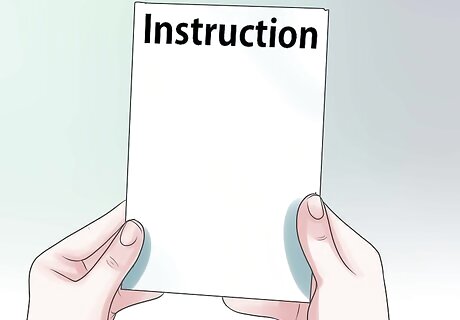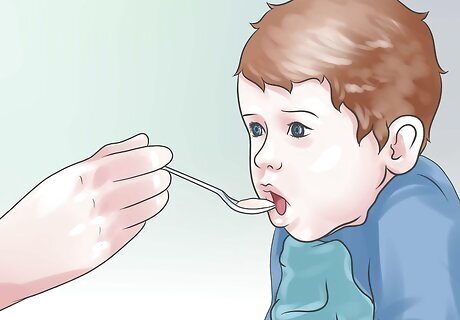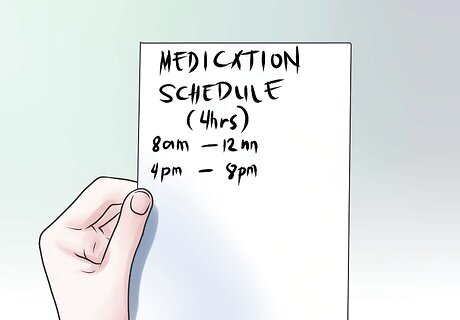
views

Consult with your child's pediatrician. It is very important to get the specific kinds of medication from them for your child's illness. A doctor might prescribe medicine for a particular reason and another bottle for something else. Double check with the pediatrician concerning OTC (over the counter) medications that can be purchased from any pharmacy or drug store. While it may look "safe" to do so, many products are considered to be "multi- symptoms", meaning it may assist a sore throat, runny nose, coughing, or stomach aches. These are not needed whatsoever if your child does not have more than one symptom.

Read closely on the amount of dosage. Note down on paper the specific amount of each medication you need to give your child and how often per day. Time spans can be varied from every 4 to 6 hours, 6 to 8 hours, or every 12 hours. Directions can also state daily amounts, such as twice or three times a day, or different amounts depending on weight.

Read any additional instructions. Unless it reads that it needs to be given on an empty stomach, this is the true treasure to prepare and schedule medications at the same time that your child eats.

Weave medications into your child's daily schedule. Never make them the most important thing or have it affect what your child already does. Have them have a dosage when they are alert and awake first thing in the morning. By doing so, the medicine can work into their bodies as the day starts and you can also calculate later medications easier. Always try to administrator medicine to them before they sleep for the night, so that the antibiotics can flow into their system overnight. You might find this very convenient over than choosing to wake them up in the middle of the night just to give them medicine.

Avoid stopping any doctor prescriptions when your child "feels" better. It's always advisable to continue them to the specified time so that the antibiotics and medication has enough time to completely kill off the bacteria. Stopping prescriptions mid-way or when the child feels better may cause the bacteria to grow again.

Watch closely during travel. If you know that you're crossing timezones, consult with the pediatrician and discuss the best methods to accommodate time shifting, especially bedtime hours. If you're staying within the same timezone, stay on the same hours as you planned out, for the best convenience and organization.



















Comments
0 comment